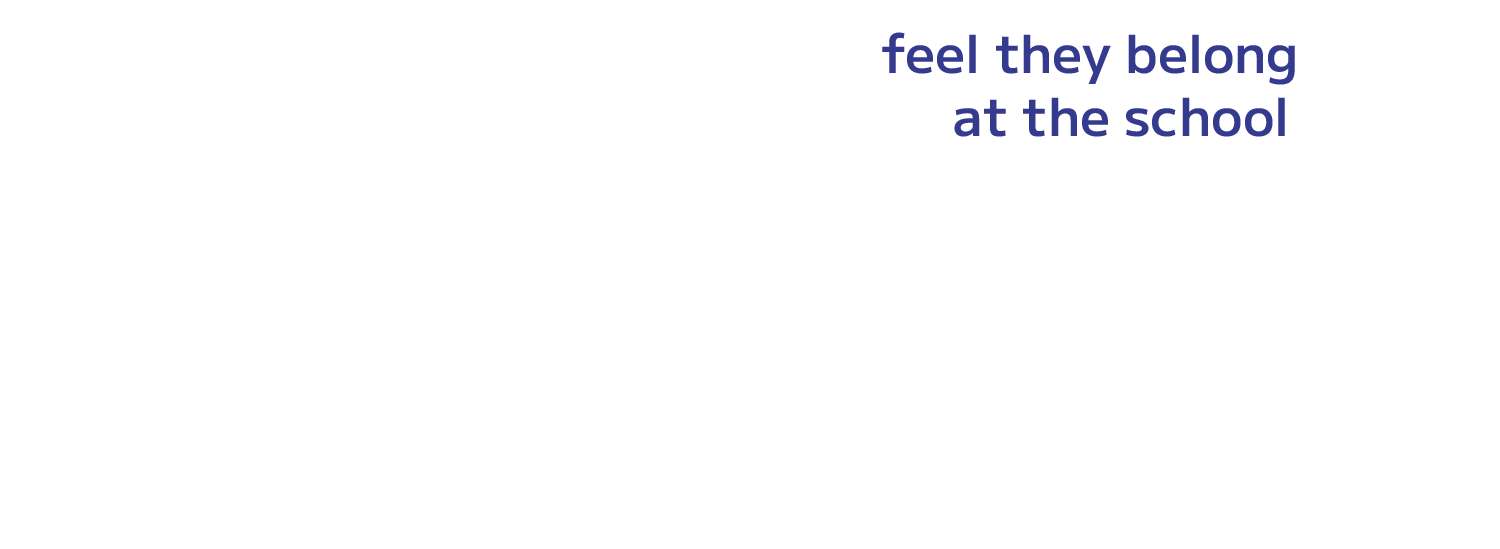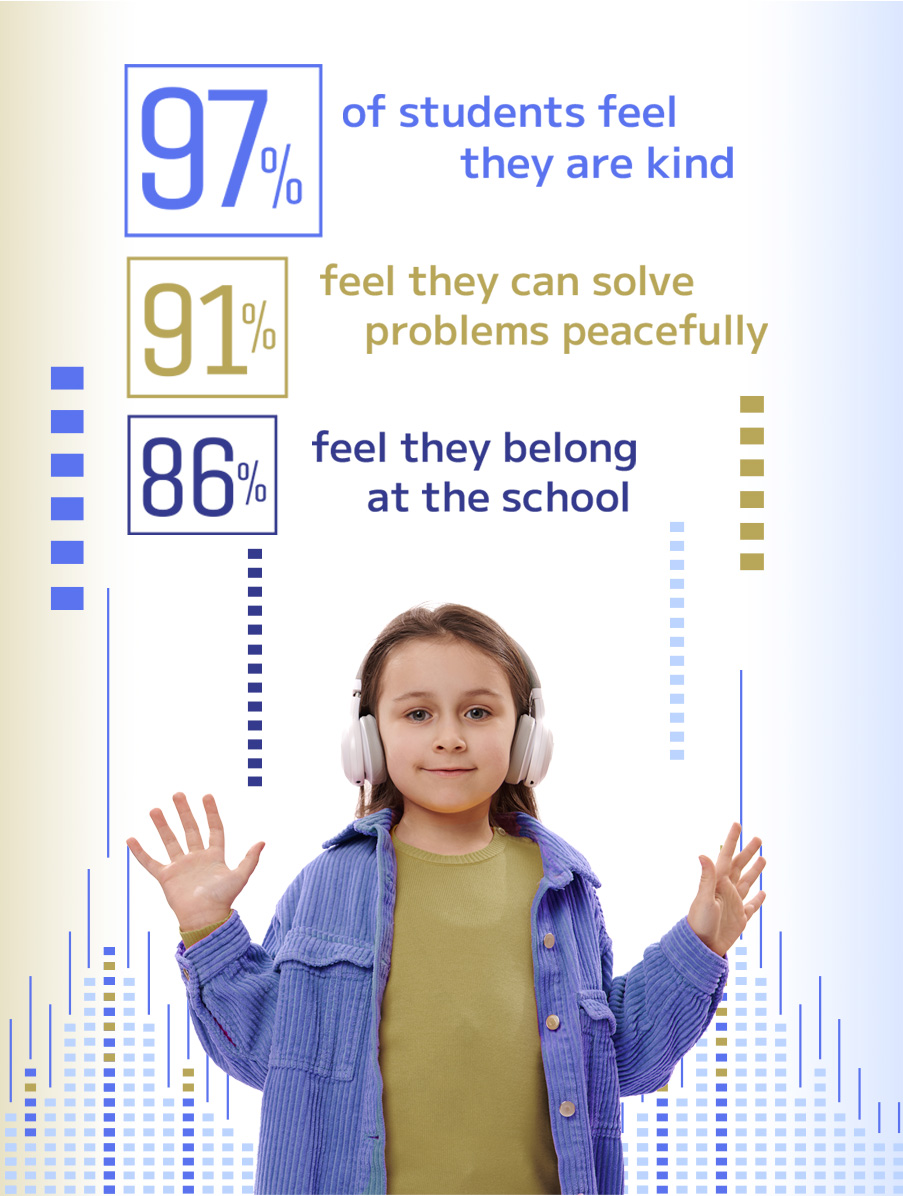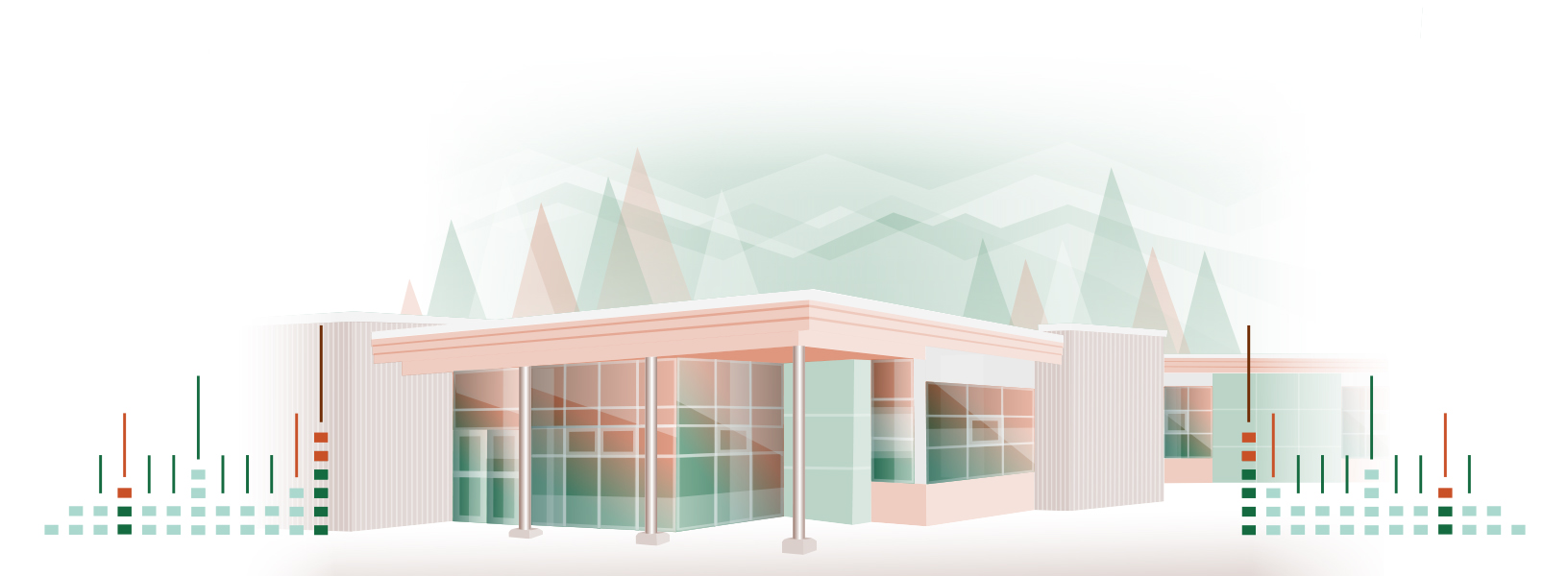School Goal Two
To improve student achievement in reading, writing, listening, and speaking by using a school-wide scope and sequence of literacy concepts and programs.
How can we continue to increase student success in literacy?
Literate students are able to explore language and story to learn more about themselves, their families and the role of Indigenous knowledge in their learning. Through ongoing development of listening and speaking skills, students can connect with others near and far which is fundamental to global citizenship. Strong literacy skills allow students to deepen subject-specific and cross-curricular understanding, thereby supporting increased academic success in all content areas.
This goal and focused inquiry question aligns directly to our district strategic priority in Literacy. Additionally, our intended approaches are deeply connected to First Peoples Principles of Learning.
First Peoples Principles of Learning

The Literacy Goal needs to ensure that:
- Learning is holistic, reflexive, reflective, experiential, and relational (focused on connectedness, on reciprocal relationships, and a sense of place).
- Learning is embedded in memory, history, and story.
Over the course of the year, the following will be our direct areas of focus:
- Integration of Indigenous literature, language and culture to support connectedness, reciprocal relationships and a sense of place, as we address the 94 Calls to Action;
- Ongoing focus on Call to Action #62 - Teachers will learn the tools to teach about Indigenous cultures, languages, including residential schools, and will learn to use Indigenous teaching styles, as outlined in the Indigenous Principles of Learning;
- Access to just right and culturally responsive text for all students;
- A variety of decodable texts from different publishers have been added to our resources, with these guiding principles in mind.
- Access to Google Read&Write and other assistive technologies where possible;
- Inclusion Support Team to engage weekly at Wednesday meeting in a review of the comprehensive support model (balance of push-in and pull-out support where necessary);
- Regularly scheduled School-Based Team meetings with teachers to plan for students with lagging skills, using an RTI model (Tier 1,2,3), differentiation of instruction and comprehensive support model;
- Provide ongoing opportunities to practice oral language storytelling through a First Peoples’ lens where learning is embedded in memory, history and story;
- Ongoing commitment to adding more and more diverse voices to our learning commons book collection;
- Supporting Heggerty (phonics and phonological awareness instruction) through teacher professional development and resourcing;
- In addition to supporting staff to participate in district-offered professional learning sessions, collaboration and peer mentoring opportunities are supported within the school.
- Continuing to implement a science of reading model; and
- Ongoing development of comprehensive literacy support model (both push in and pull out support to respond to student needs).
- Lunch and learn sessions, and other staff collaboration opportunities are underway. At these sessions resident experts can share instructional practices, how to use new resources based on data supported models (such as decodable texts, UFLI teacher manuals, Heggerty resources, etc...), and staff can express what further resources or support they need to further literacy instruction.
Over the 2025-2026 year, we will track progress on our initiatives identified in this year’s plan. And, specifically:
- DLA data review fall and spring (note trends, monitor progress, inform instruction, Pro-D development, instructional strategies, resources, learning support models);
- Spring DLA has now been implemented across all grades and can be layered with report card data, and FSA results to provide a rich understanding of learner success in literacy. Over time this data will used to track progress of cohorts from year to year, and to provide staff with feedback as to the effectiveness of literacy instruction and interventions.
- Early primary DLA data collected in fall and then again with the same students in the spring indicates that strategies used by classroom and support teachers have been highly effective in skill building over the course of a school year. Where these supports are not as effective, staff can look at what other factors might be impeding learning.
- DLA data collected in the fall and again in the spring with students identified for support from the Literacy Support Teacher, show significant progress among students receiving intervention using a data-supported program with the use of decodable materials and based on programs such as UFLI or Heggerty. As an example, grade 1 students receiving Literacy support increased their word recognition by an average of 20 words each from a list of 25 words. Grade 2 students receiving support increased their recognition by an average of 8.4 words from a 25 word list.
- Report card data - June summative reports in ELA will be reviewed in fall in grade groups during class profile team meetings (learning support model will reflect the fall needs and will be on a 6-8 week review cycle), and discussed regularly at weekly Inclusive Education meetings;
- FSA Data will inform whole school instructional practices for literacy and guide our teacher and Educational Assistant professional development model;
- Review other formative and summative literacy assessment tools to assess efficacy and relevancy;
- Interviews with students and parents to get anecdotal feedback. Examples of each are below:
- In interviews, grade 2 students have provided the following reflections on their experiences in early literacy lessons from teachers using UFLI and/or Heggerty resources:
- “When we learn what a diagraph or letter says, then it can help me with reading AND writing. Sometimes it says silly stuff. Some people think the letter ‘A’ just says “ah,” but it can say “ay” like in “make.” Also, “E-Y” can say “ay” like in “hey.” I was able to read Charlotte’s Web on my own. It felt really good to be able to read it by myself.”
- “I really like decodable books because you can highlight words with a partner. I pay attention to UFLI because I want to know how to spell and I don’t like to misspell words. Now I hear the word and I can think of how to spell it. I self-correct myself now when I make mistakes. If people don’t know how to spell it and I do, I can just look at the whiteboard and help them. I can read chapter books like ballerina ones. It makes me feel nervous, but it is fun.”
- Parent feedback includes the following statement: “The program (UFLI) is great for reading development. It teaches phonics (the connection of sights to sounds) in small, manageable chunks based on patterning. This is paired with levelled home reading and spelling tests which are other whole language methods of learning language. It is easy for parents to do at home with their kids. It’s a very quick activity that leads to positive results, which is highly motivating.”
- In interviews, grade 2 students have provided the following reflections on their experiences in early literacy lessons from teachers using UFLI and/or Heggerty resources:
- Student Learning Survey results show that 78% of responding students (45 respondents) indicated that they feel they are getting better at reading. 68% (of 39 respondents) feel they are getting better at writing. Increased focus on writing instruction, both through provided staff collaboration time, and with support of district teacher leaders, and school based Literacy Teachers are aimed at improving these results.
- Staff participated in a podcast club examining Sold a Story. Staff discussed the subject matter as relates to reading instruction, but also the lessons that could be applied to the assessment of other programs or resources in any curricular area.
- Report card data shows that in Literacy 89.3% of our grade 5 students received Proficient or Extending proficiencies on June reports in 2025. The grade 4 cohort in June 2025 had 73% in the Proficient range, and the grade 3 cohort had 72.2% in either Proficient or Extending. We expect to see fewer students in the Emerging range while at least maintaining the numbers in Proficient and Extending ranges as our data driven early literacy instruction becomes more widely implemented and established over years.
Summary learning, based on evidence gathered over the year, will provide us with key learnings to guide next steps for the 2025-2026 school year and beyond.
We will continue to implement new instructional strategies and supporting resources for reading and writing instruction, especially at primary grades. Assessment tools such as the DLA are allowing us to not only track student progress on a large scale, but are helping us to identify struggling learners at an earlier age. This allows staff and families to explore reasons for learning difficulties and intervene as soon as possible and often prior to learning struggles damaging a child’s self-esteem or image of one’s self as a learner.
Currently, data collected from DLA, FSA, and report cards shows results holding fairly steady both from year to year within grades, and also following a cohort from year to year. However, practice in both assessment (we have worked hard as a staff to have achieved full implementation of the spring DLA), and instruction and intervention based on data driven programs such as UFLI or Heggerty are still at early stages of adoption and implementation. We will continue to track progress over the coming years as these practices become more widespread and thoroughly implemented.
Staff continue to collaborate to support one another in adoption of data driven literacy instruction, and to increase one another’s capacity in its use. Meetings are held at multiple points in the year to discuss which resources (professional texts, hands on student materials/tools, and decodable texts) are proving effective in supporting instruction, and which would be the most useful to add to our school’s resources.
Staff will continue to seek time to collaborate with colleagues, professional development opportunities and time provided at each staff meeting to collaborate on grade group writing and assessment strategies.








